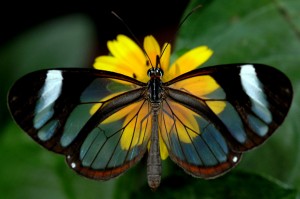If you exist on planet earth for more than about 15 years you’re almost guaranteed to “know” a few things about cockroaches.
- They will survive through seemingly impossible odds (war, famine, awkward silences).
- They are ugly and gross.
I won’t dispute number 2. In fact, I’m on board if you’re talking about the American Cockroach. But I do have a problem with number 1.
Are cockroaches really apocalypse proof? Here’s the story; myth, truth and all.
When I say cockroach I am NOT talking about the American Cockroach.….or the German Cockroach. I am talking about ALL COCKROACHES. All 7000 of them.

The 1940’s and 50’s were the times when America first started worrying about things like nuclear apocalypse. No doubt this mindset affected the insect scientists at the time.
In the late 1950’s there were major nuclear disasters, US and Russia were testing nuclear warheads, and there was a massive push for disarmament. This is when we found out that cockroaches can survive 10 times more radiation than humans. Sounds impressive. Although, if you stop reading here you might be 1 proton short of a stable isotope. Plenty of other insects can survive this amount of radiation as well! In fact some insects are 10 times better than cockroaches at surviving radiation.

Also in the late 50’s, two scientists named Willis and Lewis tested the lifespans of cockroaches without food and water. The best ones survived about a month without water and the worst ones died in 5 days. Humans can survive 3-10 days without water. Without food the cockroaches could survive between 10 and 90 days, with most species lasting about a month. Without food, a human can last between 20-40 days.
What you talkin’ ‘bout Willis and Lewis?! I thought cockroaches were nearly indestructible! They’re not, as it turns out.
Well, perhaps the living cockroaches aren’t necessarily that impressive but they’ve survived for hundreds of millions of years. How could they have survived this long and not be impressive?

Cockroaches aren’t as old as most people say they are. The first insects probably existed about 400 million years ago. But the fossil record doesn’t have anything remotely cockroach like until 100 million years later. And although these insects looked like cockroaches, they aren’t cockroaches. These are the ancestors to cockroaches and mantises. They laid eggs individually, unlike modern cockroaches, and may have behaved more like mantises. They just happen to look like cockroaches. Lucky them.
True cockroaches really only appeared 50-125 million years after these roach-like (roachoid) insects first appear. That means modern cockroaches (the ones that understood the nuances of social media) only first showed up in the Triassic or Jurassic period, which makes them no older than crocodiles. Sure, that’s pretty old; but still 100 million years younger than what we thought previously.

If you live in an old apartment building in a dense urban area then I get it, there’s too many cockroaches for you to live comfortably. But if you lived in the suburbs you would see less cockroaches and more ants. And if you lived out in the woods, you’d see almost no cockroaches but tons of ants. If your sisters have a good relationship with your children then you see a lot of aunts. It’s all about perspective, and from most scientific perspectives there actually aren’t that many cockroaches.
If aliens came to our planet and wanted to know who was in charge, they might ask the ants. Ants, by far, dominate the animal life on lane in terms of number of individuals. In terms of number of species, cockroaches are even further behind. Beetles, flies, moths, bees, butterflies, and grasshoppers all have massively more species than cockroaches do. In fact, by number of species, one could argue that cockroaches are evolutionary failures.
So, in the year 3658 when humans have scorched earth’s sky with our auto-laser-iphone-space-robot-al gore-missiles who will be left standing? Tardigrades!
Such a cute apocalypse.
Dominic Evangelista is a PhD candidate studying the biodiversity and systematics of the cockroaches of the Guiana Shield. Follow him on twitter @Roach_Brain or ask him a question about cockroaches!
Sources
Basset, Y. (2001) Invertebrates in the Canopy of Tropical Rain Forests How Much Do We Really Know? Plant Ecology, 153, 87-107.
Grimaldi, D.A. & Engel, M.S. (2005) Evolution of the Insects. Cambridge University Press, pp.
Legendre, F., Nel, A., Svenson, G.J., Robillard, T., Pellens, R. & Grandcolas, P. (2015) Phylogeny of Dictyoptera: Dating the Origin of Cockroaches, Praying Mantises and Termites with Molecular Data and Controlled Fossil Evidence. PloS One, 10, e0130127.
Misof, B.et al. (2014) Phylogenomics resolves the timing and pattern of insect evolution. Science, 346, 763-7.
Wharton, D. R. A., and M. L. Wharton 1957. The production of sex attractant substance and of oothecae by the normal and irradiated American cockroach, Periplaneta americana (L.) J. Insect Physiol. 1: 229- 239.
Wharton, D.R. A., and M. L. Wharton 1959. The effect of radiation on the longevity of the cockroach, Periplaneta americana, as affected by dose, age, sex and food intake. Radiat. Res. 11: 600-615
Willis ER, Lewis N (1957) The longevity of starved cockroaches. J Econ Entomol 50: 438–440.







We always tend to obsess on the things closest to us, because we are the center of our own universe. Since cockroaches are sometimes closer than we’d like (had some close encounters a few nights, lucky I don’t have any heart problems) our image of them is understandably distorted.
For most people, tardigrades are closer to an alien than to a bug that harasses us in our homes.
I much favor ants over both, but I admit maybe I’m being subjective.